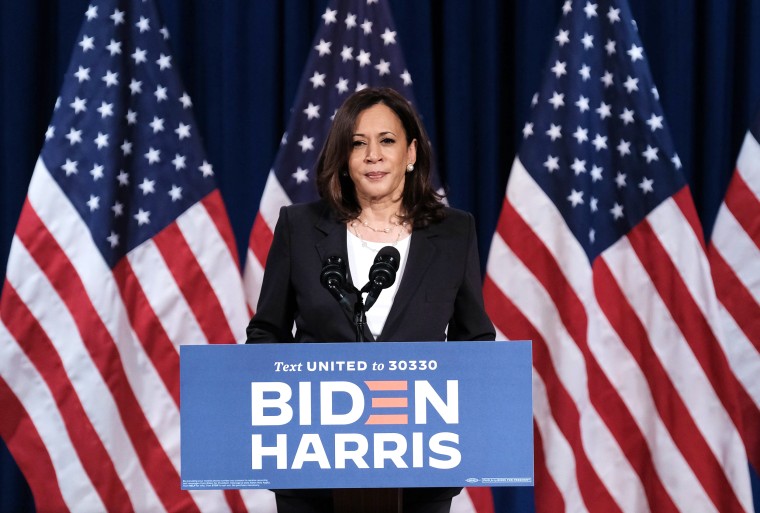Two San Francisco Bay Area nonprofits launched an initiative last week that calls on parents, students and schools to protect Asian American and Pacific Islander youth as discrimination against Asian Americans increases during the coronavirus pandemic.
The campaign, Stand Up for AAPI Youth During COVID, offers schools a toolkit that includes lesson plans that address issues such as the model minority myth, implicit biases, microaggressions, self-acceptance, cultural appropriation and more.
Program leaders held a virtual launch last Wednesday that Democratic vice presidential pick Kamala Harris kicked off. Harris gave a speech emphasizing the need to protect and support AAPI youth in the coming school year and beyond. Former Democratic presidential candidate Andrew Yang also spoke, along with other AAPIs in politics and pop culture.
“In this moment where there’s so many powerful forces trying to sell hate and division and engage in xenophobic rhetoric, we know the strength of unity,” Harris said. “We know the strength of lifting up our young leaders and doing everything we can to support them and their families. So let’s keep doing it.”
Beyond Differences, a nonprofit, and the Community Youth Center of San Francisco created the campaign in response to rising instances of discrimination recorded by the Stop AAPI Hate report that the Asian Pacific Policy and Planning Council developed. Stop AAPI Hate reported it has received a total of 2,583 reports of discrimination against Asian Americans and Pacific Islanders across the U.S. from its inception on March 19 to Aug. 5.
"The COVID-19 pandemic has become yet another reason to target Asian communities all across the country," said Sarah Ching-Ting Wan, executive director of the Community Youth Center of San Fransisco. "It is always our hope to be able to turn the table around through education. We need to strive to deepen young people's experiences on racial justice and cross-cultural relationship-building in school and out of school while adopting resources from the community."
According to Wan, remote learning and social distancing have the potential to increase anxiety and other mental health symptoms for young people who are experiencing discrimination.
"As incidents of violence continue to increase, we need to send a strong message to our young people in response to the alarming escalation in xenophobia resulting from COVID-19 and develop policy and action plans to ensure all of our young people will be able to thrive in a violence-free community," she said.
As part of this campaign, Beyond Differences will give schools free toolkits and resources developed by professionals to combat racist language in the classroom and help students understand their peers. In 2014, Beyond Differences spearheaded a similar initiative to help combat bullying and racism against Muslim-American children in the run-up to the presidential election.
This year’s campaign calls out bullying, assault, online harassment and harmful rhetoric by elected officials as some ways in which racism against AAPIs is manifesting during the pandemic.
"When Trump began to insist on the term 'Chinese virus,' we saw a spike in the number of anti-Asian hate incidents," Russell Jeung, a professor of Asian American studies at San Francisco State University who has been tracking the data for Stop AAPI Hate, told NBC Asian American in July. "When he uses those terms, people began to see the virus as Chinese and Chinese as having the virus. So his words have shaped the racial consciousness of Americans. Even non-Trump supporters are buying into that."
President Donald Trump began using the term "Chinese virus" in March, and he has repeatedly referred to COVID-19 as "kung flu."
In June, nearly one-third of Asian Americans reported having been the target of slurs or jokes because of their race or ethnicity since the pandemic began, according to the Pew Research Center. Meanwhile, one-third of all people — including 60 percent of Asians — have witnessed someone blaming Asians for the pandemic, according to a Center for Public Integrity/Ipsos poll in April.
The AAPI public figures who spoke during the launch shared stories of dealing with racism and bullying from their own lives.
“If I could count how many times I was called a ch*** growing up, I’d actually have enough to fuel my next re-election campaign,” David Chiu, a California State Assembly member, said. “My high school classmates called everyone all sorts of horrible things. This is a work in progress. America is a work in progress.”

